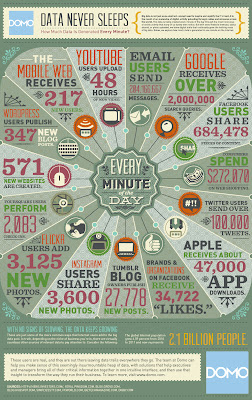 |
| Source: Dell Family Foundation |
We've written several times about the fate of education in the era of big data. One organization quickly establishing itself as the vanguard of prudence in weighing educational data is the Dell Family Foundation. The Foundation has produced responsible research and clear graphics about the myths versus the realities of schools' numbers.
Some of the fiercest fables about educational data center on the perceived "newness" and "absolutism" of collected stats. As the Dell Family Foundation stresses, student test scores do not equal perfect data. Input comes from many sources, to inform teaching and to empower educators, parents, and children to make wise choices. Today's data problems stem from research being sequestered, denied to certain constituencies. It is released only to buttress political points and support test-based outcomes, rather than achievement-based solutions.
 |
| Source: Dell Family Foundation |
 |
| Source: Dell Family Foundation |
The following articles offer informed debate about educational findings:
- 10 Education Data Myths That Keep The Sector's Wheels Spinning
- Common Ed-Data Myths: Data = Test Scores
- The Real Education Data Story Is Daily Academic Growth
 |
| Source: Visual News |
Then, as schools grow comfortable with their Excel spreadsheets, the crucial question for students becomes, "What Skills Are Essential For Big Data?" In considering how our children might fare in their Brobdingnagian century, James Kobielus, Senior Program Director of Big Data Analytics at IBM's warehousing blog, gathered an expert panel of industry insiders to lay out the critical proficiencies for math, science, and technology. His work couples neatly with Frank Catalano's at Mind/Shift, who recently probed the question of "How Will Student Data Be Used?" James Locus at Hortonworks similarly scrutinized the differences between traditional and emerging educational analytics.
All of these informed voices agree that the verdict is still out on the future of school stats. Steve Schoettler, Founder and CEO of Junyo, echoes this uncertainty in his eye-opening talk about "Learning Analytics" at the Strata Conference 2012. He explains the importance of using data to provide individualized feedback and the confusion over how to access fertile data. This understated clip gives food for thought as we approach the daunting data buffet:
For other important readings, we strongly recommend:












